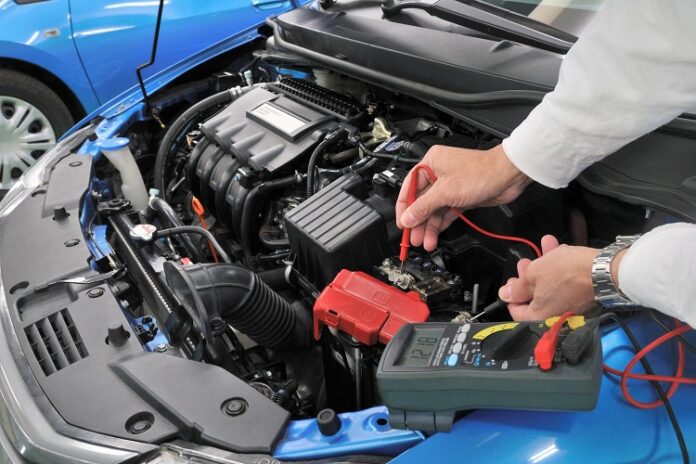With the increasing popularity of hybrid cars, it’s important to understand that their maintenance requirements differ from those of standard gasoline-powered vehicles. Hybrid cars combine an internal combustion engine with an electric motor and battery, leading to unique maintenance needs. In this page, we will explore how hybrid car maintenance differs from that of conventional vehicles, highlighting the key areas that owners should be aware of.
Battery Maintenance: One of the primary differences in hybrid car maintenance lies in the battery. Hybrid vehicles utilize a high-voltage battery pack to store and deliver electric power to the motor. You can visit Hetrainsshetrains.com to learn more about it. These batteries typically have a longer lifespan and are designed to withstand regular charging and discharging cycles. However, it’s essential to keep an eye on the battery’s health and performance. Regular inspections and diagnostics are recommended to ensure proper functioning and identify any potential issues. In the case of battery replacement, it’s important to seek the expertise of authorized service centers or dealerships due to the specialized nature of hybrid batteries.
Regenerative Braking System: Hybrid cars employ regenerative braking, a technology that converts kinetic energy into electric energy during deceleration. This process helps recharge the battery and increase fuel efficiency. As a result, the brake system in hybrid vehicles experiences less wear and tear compared to traditional cars. However, it’s still crucial to have the braking system inspected regularly to ensure optimal performance and address any potential issues promptly.
Engine Maintenance: Hybrid cars have internal combustion engines, just like standard vehicles, although they may be smaller or have different designs. Regular engine maintenance tasks such as oil changes, filter replacements, and spark plug inspections should be carried out according to the manufacturer’s recommendations. However, due to the unique operating characteristics of hybrid engines, it’s advisable to consult the owner’s manual or seek professional guidance to ensure the correct maintenance procedures are followed by Carinsurancequotesnet.org.
Electric Motor and Inverter Maintenance: Hybrid cars feature an electric motor and inverter, which play a crucial role in powering the vehicle. These components require periodic inspections and maintenance. Motor and inverter maintenance tasks may include checking for proper insulation, cooling system functionality, and ensuring electrical connections are secure. These tasks are typically performed by qualified technicians who are familiar with hybrid vehicle systems.
Cooling System: Hybrid vehicles often have additional cooling systems to manage the temperature of the battery pack, motor, and inverter. Regular inspection and maintenance of these cooling systems are essential to prevent overheating and ensure efficient operation. Coolant levels, hoses, and radiator functionality should be checked periodically, following the manufacturer’s guidelines.
Unique Diagnostic Tools: Hybrid cars come equipped with specialized diagnostic systems that are designed to monitor and analyze the hybrid system’s performance. These diagnostic tools can detect and identify specific issues related to hybrid components, allowing technicians to diagnose problems accurately. When servicing or repairing a hybrid vehicle, it’s crucial to rely on technicians who are trained in working with hybrid systems and have access to the necessary diagnostic equipment.
Battery Cell Balancing: Hybrid batteries consist of individual cells, and over time, these cells may experience slight variations in performance. To ensure optimal battery efficiency and longevity, some hybrid vehicles employ a cell balancing system that equalizes the charge among the cells. This balancing process may require specific maintenance procedures or occasional recalibration, depending on the vehicle’s design. It’s important to follow the manufacturer’s recommendations for maintaining battery cell balance.
Education and Training: Proper maintenance of hybrid vehicles often requires specialized knowledge and expertise. Technicians working on hybrid cars should receive adequate training to understand the unique components and systems present in these vehicles. As an owner, it’s essential to seek maintenance services from qualified technicians who have experience with hybrid vehicles and can provide accurate diagnoses and repairs.
Ending Words
In conclusion, hybrid car maintenance differs from that of conventional vehicles due to the presence of hybrid-specific components and systems. Owners of hybrid cars should be mindful of battery maintenance, regenerative braking systems, engine maintenance, electric motor and inverter maintenance, cooling system inspections, the use of unique diagnostic tools, battery cell balancing, and the need for specialized education and training for technicians. The tools help you to analyze data but you need to know first how to use the tools correctly from Taxi-bmw.com. By staying informed and following manufacturer guidelines, hybrid car owners can ensure the optimal performance, longevity, and reliability of their vehicles.










